For most people, mindfulness is closely linked to meditation. Sitting quietly and cross-legged with eyes closed in an incense infused room, listening to the sound of Tibetan bowls. What does that have to do with our busy working lives, where we juggle meetings, presentations, phone conferences and lunch dates all at the same time?
Well, by no means does mindfulness have to be limited to your favorite yoga studio. In essence, mindfulness has the goal to make the practitioner aware of the here and now, to remain present, calm and centered. Mindfulness is not only happening in context to your yoga mat but can - and should - be practiced anywhere. Also at work.
Regular mindfulness practice leads to a decrease in stress, and an increase in energy, focus, problem-solving skills, creativity, and overall health. Sounds exactly like the cure to most of our work-related problems, right?
About time to incorporate a mindfulness practice into our occupied workdays. How? We have collected some useful techniques on how to include mindful moments into your daily tasks to be more relaxed and perform your best in the workplace.
Be present. Always.
The basic principle of mindfulness is to be present, to be aware and conscious of what you are doing, no matter where you are. Yet, a lot of us are fulfilling tasks very unconsciously, thinking of everything else than the task that is at hand. No matter what you’re doing at work, try to remain as present as possible. Many of us are operating a lot on autopilot in our daily tasks, especially if we are confronted with a task we are already very familiar with. But instead of dreaming your mind away, every time you realize that your mind is wandering off, bring it consciously back to the present moment and focus on your task at hand. This can be easier said than done, but if you intentionally start your workday by deciding to be present and you keep it up consistently, you will realize after a short while how easy it gets to remain present and you can even drift into a ‘flow state‘ at work.
2. Return to your breath
Aaaahhh…our breath! The force of life. It may sound like such a cliche to return to your breath, but it is the single most effective yet simple way to remain present in the moment. Plus, you don’t need anything for it except your body. Did you ever notice how you start breathing shorter and faster in stressful situations?
That’s because your brain sends signals to your nervous system that it’s in potential danger. If you learn how to focus on and control your breath, you will be able to breathe yourself out of stressful situations. If you start breathing deeply into your belly, it signals your nervous system to relax again. In turn, more oxygen flows to your brain and your organs which then also leads to an increased focus on the task at hand and more creativity.
3. Gratitude wins
Our human brains are wired to negativity. Evolutionary that made sense, as we are wired for survival. Our brain would protect us from potential threats by remembering what happened in the past or by imagining the potential outcomes.
In the workplace, the opposite is true. If we are only complaining about how stressed we are, how much we hate the new project we were given and how urgently we need a holiday, we are only spiraling down in the abyss of negativity, not serving anyone, at least ourselves.
To get out of this downward spiral, gratitude is the magic cure. By practicing gratitude, we wire our brain to positive experiences. It is a great mindfulness exercise that gets us out of the cloud of negativity and back into seeing things as they are. Even if your job might not be perfect, what do you value in it? What are the good sides of it? Does it give you the money to do the things you love? Do you enjoy the lunch breaks with your colleagues? Moreover, gratitude can show us what is already going right and help us enhance the areas that need improvement from a positive perspective.
4. Focus on a single task
When our to-do lists are longer than our vacation days, multitasking can seem like a good solution. Many people think they will get things done quicker when focusing on multiple tasks at the same time compared to only a single task at once. However, research suggests that the opposite is true. We can get increasingly lost in multi-tasking and in the end of the day we are halfway through with several tasks, yet we haven’t felt the gratification of accomplishing one single task.
Focusing on a single task can bring us back to the simplicity of mindfulness, of being fully immersed in one assignment, bringing our focus and attention solely on what’s at hand at this moment.
Instead of trying to accomplish everything from our to-do lists at once, organize them by priority and then complete them one by one. This will not only clear your mind but also give you a feeling of real accomplishment.
5. Take a break
Sometimes work can get overwhelming, no matter how present we are or how deeply we breathe. If that’s the case, simply get up from your desk, stretch, get some fresh air and take a walk, rest a little bit, slow down and shift your focus to something entirely different. No matter how focused we are working, sometimes we need a break to rejuvenate again. Often stepping away from the task at hand can give us new insights when we get back at it and can increase creativity.
6. Befriend your stress
In our day and age, having a certain amount of stress at the workplace is seen as totally normal. If we are aiming to reduce our work-related stress, we probably would have to move to a deserted island somewhere in the South Pacific. Instead of reducing the amount of stress, change the way how you deal with it.
Stress is not a pleasant sensation, but it is one that was vital for our ancestors to survive. Back in the days, our stress response would only be activated when running away from a feral animal. Today, however, our nervous system jumps into ‘fight or flight‘ when we’re scared to not meet the deadline. As explained above, breathing long and deep will bring your nervous system back into a restful state.
Also consciously try to see the positive sides of your stress: a certain amount of stress can even be beneficial for our health as well as our performance at work. Short-term stress can even boost our immune system by releasing adrenaline, it is only the long term, chronic emotional stress that can harm our bodies and minds. Therefore, it’s all a matter of how you view your stress. The next time you get stressed at work, don’t freak out of how bad it is but try to adapt your mindset into new ways of thinking about your stress.
7. Always do your best, but ditch perfectionism
Another tip to be more mindful is to ditch perfectionism. Perfectionism is actually the enemy of mindfulness. Why? Nothing you do will ever be good enough, you’re always thinking about what could be done better, which never puts your mind at rest.
In this respect, there’s a huge difference between doing your best and being a perfectionist. When doing your best, you actually know yourself and what you are capable of very well, plus you have confidence in yourself. Doing your best can look very different every day. It will vary greatly if you are healthy or sick, or how familiar or unfamiliar you are with the task you are confronted with. When you do your best, you commit to focusing fully on the task and accomplishing it as best as possible. However, you also know when enough is enough and can confirm something as done, putting your mind at rest.
If you incorporate some of the tips into your busy, daily work life, you can experience an increase in focus, clarity, and imaginativeness at work. Moreover, mindfulness practice can also lead to more happiness, as you will develop a sense of gratitude and be able to see things as they really are and not as your stressed mind makes them be.
Written by Clara Malzer





